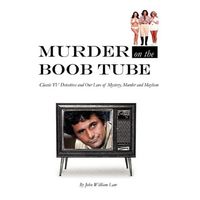 There's a story behind the shame I share with Jessica Alba…
There's a story behind the shame I share with Jessica Alba…
My good friend Ernie Wallengren co-created the NEW ADVENTURES OF FLIPPER for Samuel Goldwyn Jr.. Ernie was brought in, if memory serves, to rewrite a previous script/format by another writer that didn't win over Goldwyn. So Ernie wrote the pilot, shot it in Florida, and wanted Bill Rabkin & I to come in as producers for the series. We'd just come off of THE COSBY MYSTERIES and were looking for a job…but we really didn't want to do the show. But we owed Ernie big time, so we went in with him to meet Goldwyn and talk about the show. Goldwyn told us that he wanted the show to be "like a Charles Willeford novel, but with a dolphin." Ernie had no idea who Willeford was, but Bill & I did, so we played along, fighting laughter all the way. After the meeting, Goldwyn told Ernie we were perfect for the show…but by the time they were ready to make a deal with us, we got a gig on SEAQUEST and bowed out. Ernie didn't mind us going to another show, he knew it was better for our careers and our bank accounts, but he insisted we find him someone else to take our place…so we recommended our friend Terry Winter, who we'd worked with on COSBY and who was desperate for a gig. Ernie signed him up right away.
Flash forward six or eight months. SEAQUEST had been cancelled and I was having a friendly lunch with Ernie, who was miserable. He was complaining about how hard it was to come up with stories for his show. I told him to stop whining, it was easy — I could come up with three stories for FLIPPER before dessert. So he said "Go ahead, smartass." So, just to be funny, I pitched "Cape Flipper," a dolphin take on Cape Fear. A killer that Flipper put away comes back to settle the score. Ernie's face lit up. "You've got an assignment. I need it in four days." I laughed, because I was joking. Ernie laughed, because he wasn't. I tried to talk him out of it, but he was quick to remind me how much we owed him. (He'd hired us on staff on two series early in our careers).
I don't remember why Bill wasn't at the lunch, or what his reaction was when I told him we had an assignment to write "Cape Fear with a dolphin," but I do know he took the writing of the script in stride. I struggled with it. It was fun for Bill and hell for me. The only pleasure I got out of the show was that the bad guy is reading my book MY GUN HAS BULLETS in one of the scenes.
We ended up writing a second episode of FLIPPER that was even worse (it was called "That's A Moray," which should tell you how awful it was), but I don't remember how that one came about. All I remember is that Lois Chiles, the female lead from the 007 movie MOONRAKER, was the guest star.
The only thing FLIPPER is memorable for is, of course, Jessica Alba. Ernie discovered her when she was twelve or thirteen and I have to give him credit — even then, he knew that she was going to be a big star. He must have said it a hundred times. It was hard for me to see her potential from a FLIPPER episode, but he saw her future very clearly.







